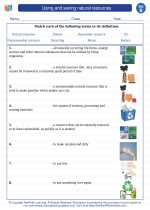Respiration
Respiration is the process by which organisms exchange gases with their environment. In humans and many other organisms, respiration involves taking in oxygen and releasing carbon dioxide as a waste product. There are two main types of respiration: aerobic respiration, which requires oxygen, and anaerobic respiration, which occurs in the absence of oxygen.
Aerobic Respiration
Aerobic respiration is the process by which cells use oxygen to break down food molecules and release energy. This process occurs in the mitochondria of cells and can be summarized by the following chemical equation:
C6H12O6 + 6O2 → 6CO2 + 6H2O + Energy
Anaerobic Respiration
When oxygen is not available, some organisms can undergo anaerobic respiration, also known as fermentation. This process is less efficient than aerobic respiration and produces lactic acid or ethanol as byproducts.
Study Guide
- What is respiration?
- What are the two main types of respiration?
- Where does aerobic respiration occur in cells?
- What is the chemical equation for aerobic respiration?
- What are the byproducts of anaerobic respiration?
[Respiration] Related Worksheets and Study Guides:
.◂Science Worksheets and Study Guides Second Grade. Using and saving natural resources
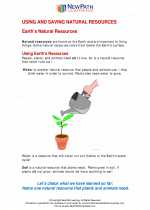
 Worksheet/Answer key
Worksheet/Answer key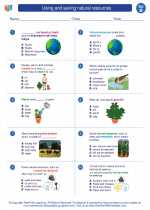
 Worksheet/Answer key
Worksheet/Answer key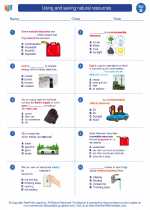
 Worksheet/Answer key
Worksheet/Answer key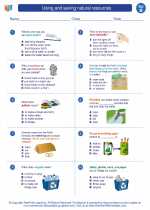
 Vocabulary/Answer key
Vocabulary/Answer key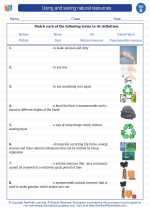
 Vocabulary/Answer key
Vocabulary/Answer key